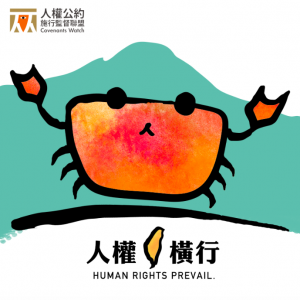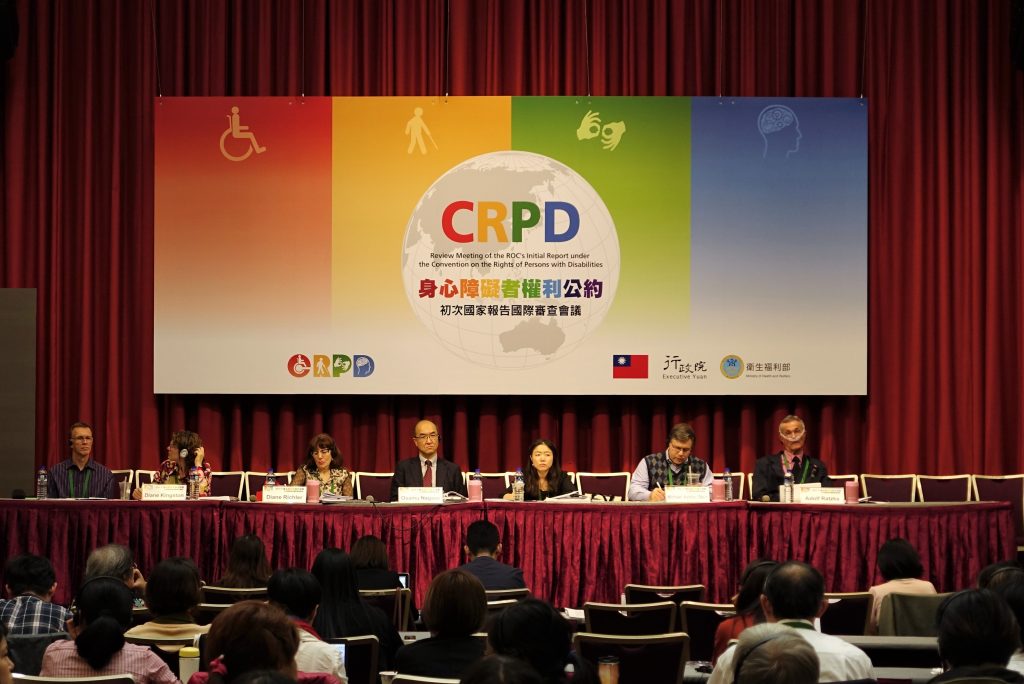Covenants Watch (CW) is an NGO based in Taipei, Taiwan. It is committed to promoting human rights and equality for all people. Excluded from international society since the 1970s, the Taiwanese government has not been under the supervision of the United Nations system. Under these circumstances, CW strives to introduce a unique treaty review process that can hold the government accountable and ensures its domestic laws, policies and practices are aligned with international human rights standards. In addition to its domestic activities, CW plays an increasing role on the international level by participating in the Special Procedures and the Universal Periodic Review of the UN Human Rights Council.

Covenants Watch is a non-profit and non-governmental organization established on 10 December 2009 (the Human Rights Day) by a coalition of human rights NGOs, lawyers, academics, and activists, under the leadership of Mr. Bun-Hiong Ng (Peter WS Huang), a veteran of human rights movement in Taiwan.
It came into existence as an umbrella organization to link the efforts of its members into monitoring the government in fulfilling its obligations under core human rights conventions. This is of particular importance for Taiwan because it lies outside of the international human rights monitoring system.
The year 2009 is critical because the parliament ratified the two Covenants namely ICCPR (International Covenant on Civil and Political Rights) and ICESCR (International Covenant on Economic, Social and Cultural Rights) were endowed domestic legal status by an Implementation Act. Implementation Acts for CEDAW (Convention on the Elimination of All Forms of Discrimination Against Women) was passed in 2011. Implementation Acts for CRC (Convention on the Rights of Children) and CRPD (Convention on the Rights of Persons with Disabilities) were passed in 2014.

National Human Rights Institution (NHRI)
Violations of human rights are not only done by individuals or companies, but there are actually many cases where a State is directly or indirectly involved in an institutionalized human rights violation. In these circumstances where a national authority should be investigated and prosecuted, a National Human Rights Institution (NHRI) is necessary as an independent institution from the government. The United Nations adopted “the Principles relating to the Status of National Institutions (The Paris Principles)” during the General Assembly in 1993 and it lists up criteria which a NHRI should meet upon the establishment.
Li Ming-Che Case
On 19 March 2017, a Taiwanese human rights activist Li Ming-Che was illegally arrested, and he was, as the first case for a Taiwanese citizen, sentenced to five-year imprisonment for “subversion of state power. The entire procedure of the case, starting from his detention and arrest to the trial and verdict, has violated international human rights conventions as well as Chinese Criminal Procedure Law. Moreover, the fact that the evidences used against him in court were merely his peaceful expressions of speech on social media clearly stamples on the freedom of expression guaranteed by the international law and Taiwanese law as fundamental human rights.
Tibet
Although Tibet is currently one of the Autonomous Regions in China, Tibet used to be a sovereign state until it was invaded by the Republic of China and forced to accept “the Seventeen Point Agreement” in 1950. This document is the first-ever document stating that Tibet is a part of China. Tibetan people, as well as their culture, language, religion and other traditional values, are severely oppressed by the Chinese government by means of compulsory Mandarin language education or mass destruction of Tibetan temples. It should also be noted that Dalai Lama, the spiritual leader strongly supported by Tibetan people, is obliged to be in exile in Dharamshala, a city in Northern India.
Implementation Act
Because of its contested status, Taiwan has been excluded from the United Nations, and therefore prevented from ratifying international human rights treaties and cooperating with UN Human Rights Bodies. In response to the situation, Taiwan adopted a domestic law entitled Act to Implement the ICCPR and the ICCPR in 2009. The law is giving the two covenants binding forces in the domestic legal system. This law also imposes the government to establish a human rights treaty review mechanism. Taiwan already adopted implementation acts for five international human rights treaties (ICCPR, ICESCR, CEDAW, CRC and CRPD) among nine treaties which are designed as “Core Human Rights Treaties” by the UN. However, the four other treaties (ICERD, ICMW, CPED and CAT) are to be adopted in order to achieve holistic implementation of international human rights treaties in Taiwan.

